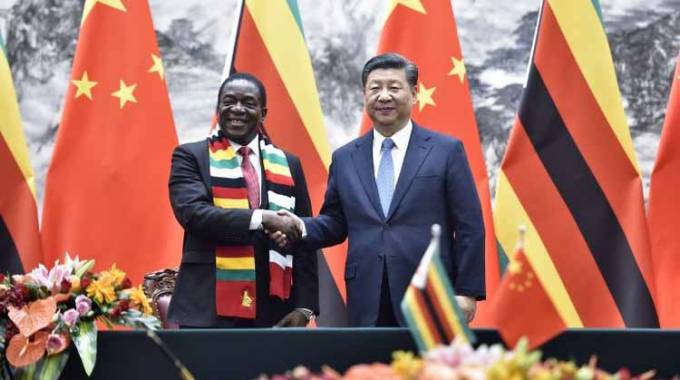
The Sunday Mail

Shelton Dzapasi
ZHAO XIAOZHUO, a researcher at the Peoples’s Liberation Army Academy of Military Sciences, said something profound during the third China-Africa Peace and Security Forum held in Beijing in August last year.
“Development promotes security and security safeguards development,” Zhao said.
He was speaking in the context of the Global Security Initiative (GSI), which was proposed by President Xi Jinping as a framework to promote a new vision of security that emphasizes dialogue, partnership and win-win cooperation among participants, as well as address security deficits and challenges in the world, especially in Asia, Africa and the Middle East.
Put simply, peace and security mean the absence of war or conflict, including the guarantee or capacity of the state to contain, repel or deal with threats, which are both traditional and non-traditional.
Zimbabwe is part of the GSI member network and has begun reaping fruits of cooperation under the framework, bolstering already solid bilateral relations with China.
On January 19, China handed over anti-narcotics laboratory equipment to the Zimbabwe Republic Police (ZRP) to support its fight against drug and substance abuse.
The equipment was officially handed over by Chinese Ambassador to Zimbabwe Mr Zhou Ding to Home Affairs and Cultural Heritage Minister Kazembe Kazembe at a ceremony attended by ZRP Commissioner-General Godwin Matanga and Government officials at the Criminal Investigations Department (CID) headquarters in Harare.
The equipment — comprising of Raman spectrometer and drug extraction and sampling kits and technologies that can detect explosives and hazardous substances — will make a huge difference in fighting drug and substance abuse in the country.
At the same time, Zimbabwean authorities said this would enhance national capacity to fight drug abuse and drug-related crimes and threats to national security, such as terrorism, including at borders.
Ambassador Zhou revealed that China has provided “lots” of training opportunities for police officers and Government officials, while the two sides are planning to sign a memorandum of understanding to strengthen police cooperation.
Smart policing is also critical in maintaining public order and peace through utilising digital tools and surveillance, which is a good thing.
Issues such as cybercrime and terrorism represent new threats that are within the emerging security realm.
Traditional threats include armed conflict, which could pose significant danger to countries and disrupt economic progress and social stability.
The insurgency in Mozambique as well as the instability in the Democratic Republic of Congo are instructive.
The threat from Mozambican insurgents is not too far off, as historically, Zimbabwe suffered from instability wrought on its eastern neighborhood, which disrupted its trade corridor.
Zimbabwe is set to benefit from Chinese cooperation bilaterally and under GSI to counter such threats.
In December 2023, the country received an assortment of military hardware and this builds capacity of the military to participate in regional peace-keeping.
At the same time, an important function of peace and security is guaranteeing the success of Zimbabwe’s economy and providing a secure environment for investors.
Research shows that some of the economic benefits of the GSI for China and its partners include helping to create a more stable and secure environment for the major economic projects, which include infrastructure, trade, investment, energy and digital sectors. Incidentally, China has another economic framework, the Belt and Road Initiative (BRI).
The BRI aims at expanding China’s market access and influence in the emerging and developing economies, diversifying its energy sources and routes and ensuring the security of its energy supply.
Zimbabwe, which continues to deepen its relations with China under the matrix of comprehensive strategic partnership, requires capacity strengthening to guarantee peace and security so that it can prosper and unlock mutual benefits with China at bilateral and multilateral levels.
This underlines the nexus between development and security.
*Shelton Dzapasi is a researcher with a Harare-based think-tank that focuses on issues and solutions in local and global affairs, political economy and geopolitics.






